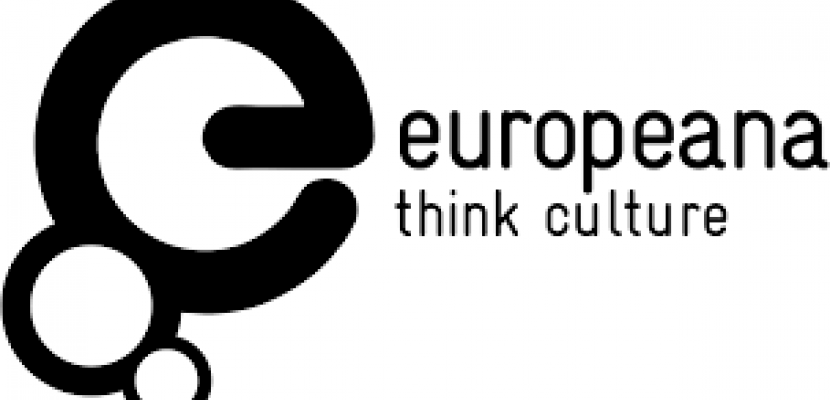Image

Europeana for Tourism Policy Recommendations
Published on 10 July 2018

Netherlands
Drenthe
This is the good practice's implementation level. It can be national, regional or local.
About this good practice
Europeana is a virtual library for making Europe's cultural heritage accessible to all for work, learning or pleasure, contributing to an open, knowledgeable and creative society. It can serve also as an asset for the tourism sector. The Europeana Foundation is cofinanced by the EU Connecting Europe Facility.
Increasing the use of Europeana-enabled cultural heritage content through its systematic implementation in niche and participative tourism, given that:
- Tourism operators aim to create, build and market the destination as a brand by increasing the number of overnight visitors, increasing tourists’ consumption and spending (on shopping, visits, gastronomy etc.), enhancing visitors’ experiences.
- Culture is at the centre of tourism marketing strategies for some destinations where mass tourism activities are absent or simply not possible.
- The tourism industry has its own rules , so Europeana and the cultural heritage institutions it represents need to incorporate their offer into this ecosystem to be successful.
Key actions:
1. To create demand within the tourism sector for the Europeana-enabled content of the cultural heritage organisations
2. To promote a high quality supply of Europeana-enabled content from the cultural heritage organisations for re-use
3. To better articulate the value of linking supply with demand through case studies and best practice examples
4. To establish and build on the relationship between culture and tourism policies.
Increasing the use of Europeana-enabled cultural heritage content through its systematic implementation in niche and participative tourism, given that:
- Tourism operators aim to create, build and market the destination as a brand by increasing the number of overnight visitors, increasing tourists’ consumption and spending (on shopping, visits, gastronomy etc.), enhancing visitors’ experiences.
- Culture is at the centre of tourism marketing strategies for some destinations where mass tourism activities are absent or simply not possible.
- The tourism industry has its own rules , so Europeana and the cultural heritage institutions it represents need to incorporate their offer into this ecosystem to be successful.
Key actions:
1. To create demand within the tourism sector for the Europeana-enabled content of the cultural heritage organisations
2. To promote a high quality supply of Europeana-enabled content from the cultural heritage organisations for re-use
3. To better articulate the value of linking supply with demand through case studies and best practice examples
4. To establish and build on the relationship between culture and tourism policies.
Resources needed
- Communication and collaboration between destinations and stakeholders in order to create joint offers
- Bringing key players and stakeholders together
- Harmonising copyright re-use; promote Europe to the rest of the world; and consider multilingualism.
Variable funding according to CH assets.
- Bringing key players and stakeholders together
- Harmonising copyright re-use; promote Europe to the rest of the world; and consider multilingualism.
Variable funding according to CH assets.
Evidence of success
The recommendations are very useful for cultural tourism, as:
Using case studies and usage statistics, tourism policy-makers can advocate and promote the value of using digitised cultural heritage content in cultural tourism marketing strategies.
Using case studies and visibility statistics, cultural policy-makers can demonstrate to cultural institutions that their digitised cultural heritage content is a valuable asset in the advocacy and promotion of cultural tourism marketing strategies.
Using case studies and usage statistics, tourism policy-makers can advocate and promote the value of using digitised cultural heritage content in cultural tourism marketing strategies.
Using case studies and visibility statistics, cultural policy-makers can demonstrate to cultural institutions that their digitised cultural heritage content is a valuable asset in the advocacy and promotion of cultural tourism marketing strategies.
Potential for learning or transfer
Europeana facilities offer an excellent basis for learning and transfer.
Tourism policy-makers should:
- highlight the value of cultural heritage content as an asset in the promotion of niche destination marketing, addressing tourism sector challenges of seasonality and locality.
- should promote closer collaboration between local tourism bodies, service providers and cultural institutions.
- view Europeana as a resource they can build on and shape according to the needs of the tourism sector locally, nationally and across Europe and state their needs of that resource.
Cultural policy-makers are encouraged to take active and coordinated measures to promote the digitisation of Europe’s cultural heritage. They should articulate how the widest possible access to, re-use of and preservation of digital cultural heritage benefits society and the European economy, and the ways in which it can address the needs of the tourism sector.
Europeana is used in CHRISTA project action plans.
Tourism policy-makers should:
- highlight the value of cultural heritage content as an asset in the promotion of niche destination marketing, addressing tourism sector challenges of seasonality and locality.
- should promote closer collaboration between local tourism bodies, service providers and cultural institutions.
- view Europeana as a resource they can build on and shape according to the needs of the tourism sector locally, nationally and across Europe and state their needs of that resource.
Cultural policy-makers are encouraged to take active and coordinated measures to promote the digitisation of Europe’s cultural heritage. They should articulate how the widest possible access to, re-use of and preservation of digital cultural heritage benefits society and the European economy, and the ways in which it can address the needs of the tourism sector.
Europeana is used in CHRISTA project action plans.
Further information
Website
Good practice owner
You can contact the good practice owner below for more detailed information.
Organisation
Europeana Foundation

Netherlands
Drenthe
Contact
Secretary-General